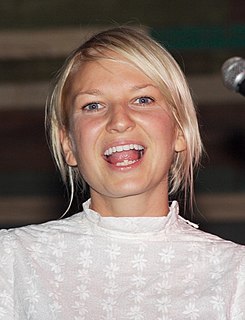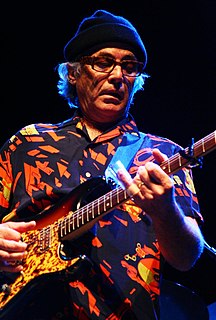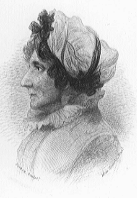A Quote by Terry Pratchett
There's some things that you wouldn't tackle in a children's book because it would be beyond, not the mental capabilities, but the experience of someone under the age of say ten or eleven to encompass. But that field is smaller than you might think. They can easily cope with death and things like that; they know about it and it's a subject that often preoccupies them.
Related Quotes
I don't change the language for children books. I don't make the language simpler. I use words that they might have to look up in the dictionary. The books are shorter, but there's just not that much difference other than that to be honest. And the funny thing is, I have adult writer friends [to whom I would say], "Would you think of writing a children's book?" and they go, "No, God, I wouldn't know how." They're quite intimidated by the concept of it. And when I say to children's books writers, would they write an adult book, they say no because they think they're too good for it.
Some men look at Constitutions with sanctimonious reverence, and deem them, like the ark of the covenant, too sacred to be touched. They ascribe to the men of the preceding age a wisdom more than human, and suppose what they did to be beyond amendment. I knew that age well; I belonged to and labored with it. It deserved well of its country. It was very like the present, but without the experience of the present; and forty years of experience in Government is worth a century of book-reading; and this they would say themselves, were they to rise from the dead.
If you want your children to relate to the culture you live in, if you want to train them outside of the general system, you have to tell your children that ordinary children tend to say things like 'I can run faster than you; I can draw better than you; I know things you don't know'. You have to tell them what normal children are like. Normal children are messed up and you have to tell them about that. But if you instruct your child in high correlation with the physical world, they won't be able to relate with normal children. Normal means mixed up as I use the word.
When people say, "Show your face, you're not ugly." I want to say, "I know. I'm not doing it because I think I'm ugly; I'm trying to have some control over my image. And I'm allowed to maintain some modicum of privacy. But also I'd like not to be picked apart or for people to observe when I put on ten pounds or I have a hair extension out of place." Most people don't have to be under that pressure, and I'd like to be one of them. I don't go on Twitter. Because when people say things like, I don't know, "I hope you get cancer and die," it hurts my feelings.
It's a very different experience shooting in 3-D because the camera rigs are so large. Everything we've become accustomed to in the last ten years as filmmakers, which is cameras getting smaller and smaller and you can just throw them on your shoulder and stick them in a car and do whatever you want, you can't do any of that now. You're forced to put things on dollies and track and cranes.
We live in a very self-absorbed age. I guess it's naturally human to think about my own problems as somehow greater than someone else's. I think when any one of us begins to think that way, it might be well to look beyond ourselves. Who am I to say that I am more handicapped, or suffering more, than someone else?
I know that as a very young child, I was afraid of death. Many children become aware of the notion of death early and it can be a very troubling thing. We're all in this continuum: I'm this age now, and if I live long enough I'll be that age. I was 20 once, I was 10, I was 4. People who are 20 now will be 50 one day. They don't know that! They know it in the abstract, but they don't know it. I'd like them to know it, because I think it gives you compassion.
I always wonder when people have any kind of spiritual and meditative practice especially if it's one designed in part to help them cope with things that seem unmanageable and to cope with something like death, if they're able to maintain that practice and maintain the equanimity at the time of death whether it's, you know, that person's or that person's loved one.
Many people will tell you that an expert is someone who knows a great deal about the subject. To this I would object that one can never know much about any subject. I would much prefer the following definition: an expert is someone who knows some of the worst mistakes that can be made in the subject, and how to avoid them.
We can cooperate more easily with those who more easily intelligible to us, who are more familiar to us. But the advantages of specialization of labor often push us in the direction working with people who have different strengths and viewpoints than we do. I think that this is one major reason why moralities are always subject to change, because some of the people we cooperate with are going to be different from us in ways that often lead them to have different value orientations than we have; and interacting with them can change us.



































